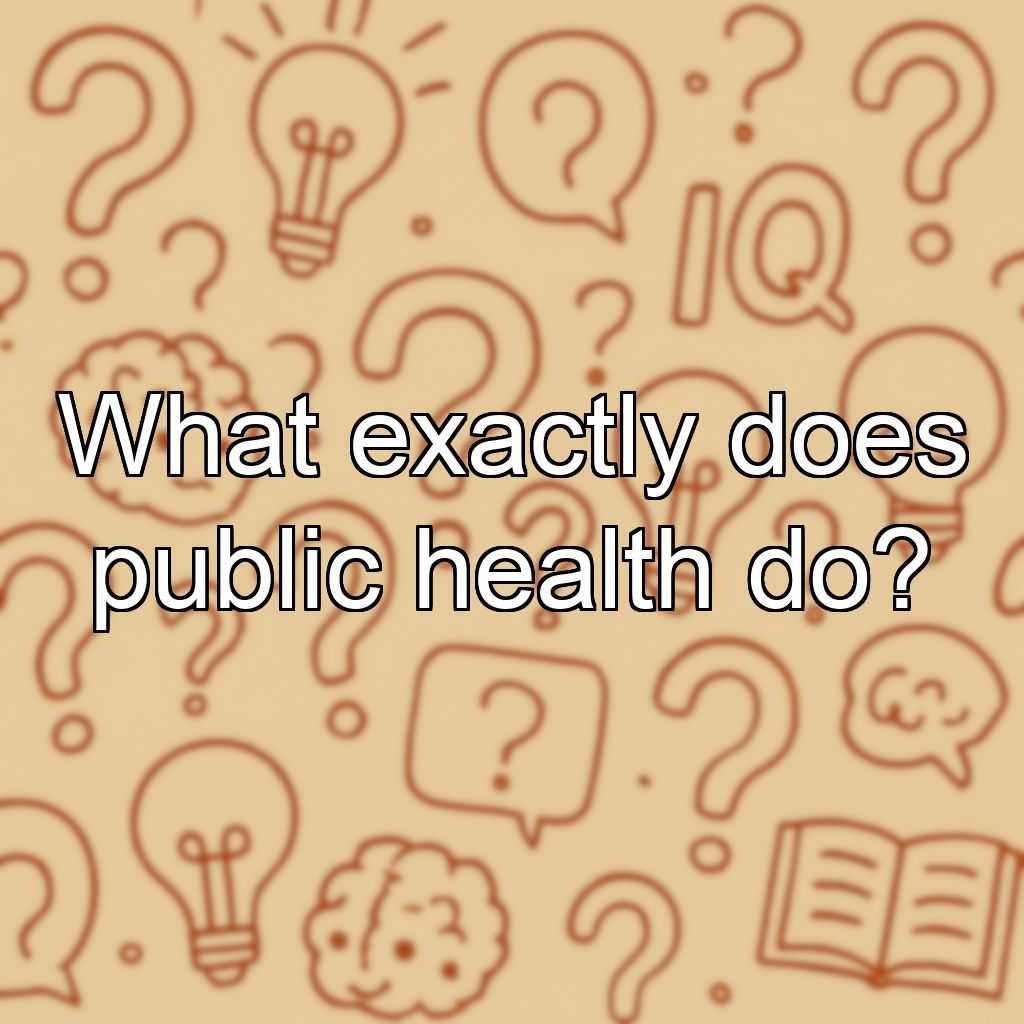What exactly does public health do?

What Public Health Does
Public health is a field dedicated to improving and protecting the health of entire populations. Rather than focusing on individual patients, public health works to prevent disease, prolong life, and promote health at the community, local, national, or global level.
Key Functions of Public Health
- Disease Prevention: Implements vaccination programs, monitors outbreaks, and encourages practices that reduce the spread of infectious diseases.
- Health Promotion: Develops campaigns and policies to encourage healthy behaviors such as exercise, proper nutrition, and smoking cessation.
- Health Education: Provides information and resources to help people make informed decisions about their health.
- Environmental Health: Ensures safe water, clean air, proper sanitation, and safe food by monitoring and regulating environmental hazards.
- Policy Development: Advises governments and organizations on policies that support public health, such as seatbelt laws, tobacco regulations, and guidelines for workplace safety.
- Health Services Administration: Organizes and manages health systems to ensure access to care and efficient delivery of health services.
- Research and Surveillance: Collects data and conducts studies to monitor health trends, identify risks, and evaluate the effectiveness of interventions.
- Emergency Preparedness: Prepares communities to respond to natural disasters, pandemics, and other public health emergencies.
Impact of Public Health
- Increased life expectancy
- Reduced infant and child mortality
- Control of infectious diseases
- Safer workplaces and environments
- Improved quality of life for populations
Overall, public health works behind the scenes to create safer, healthier communities by addressing health issues at their source and on a wide scale.